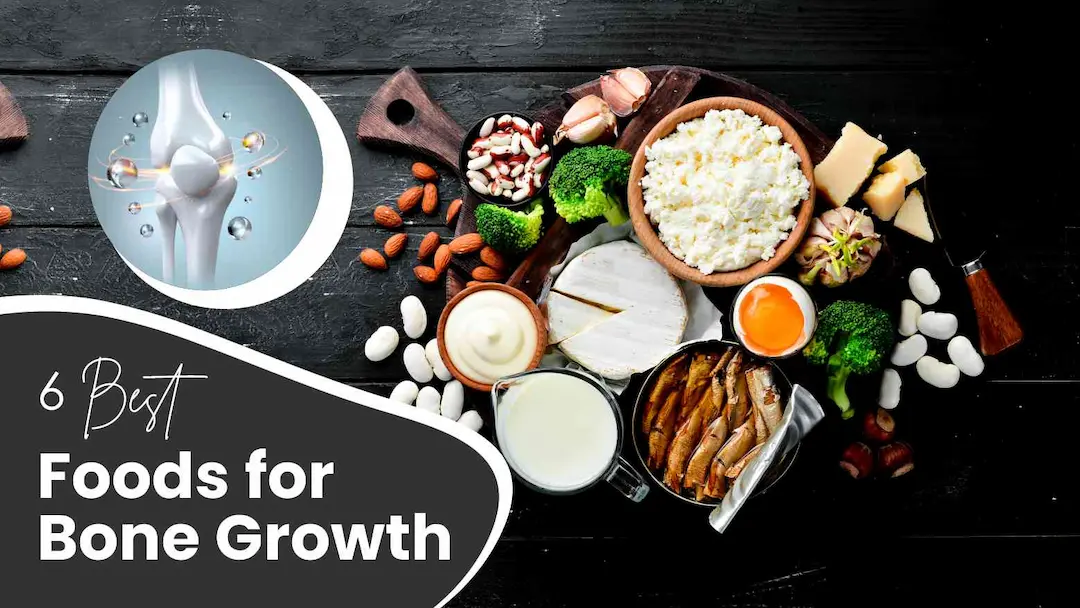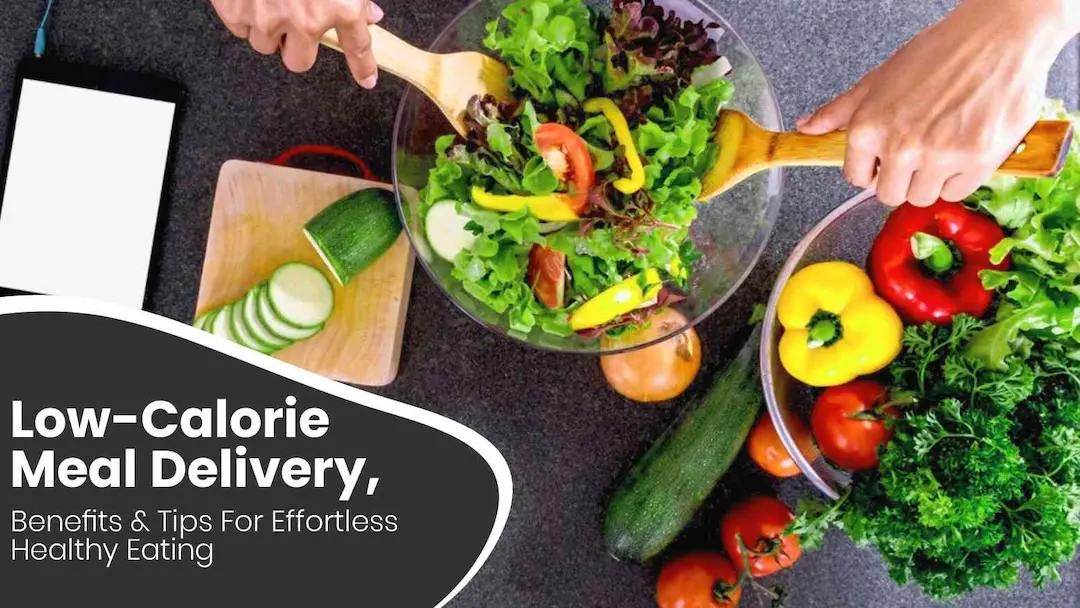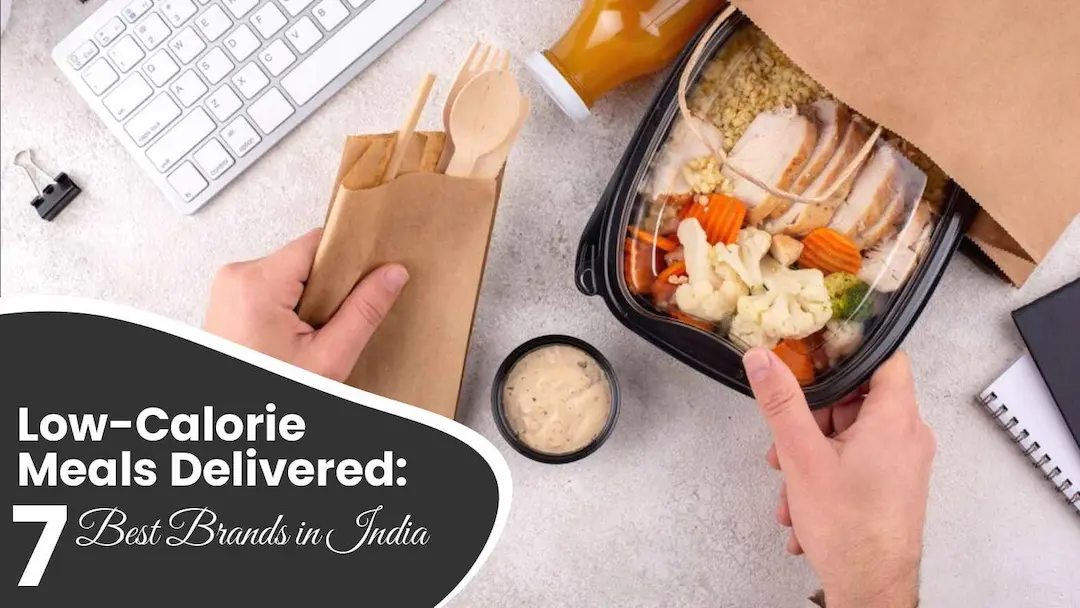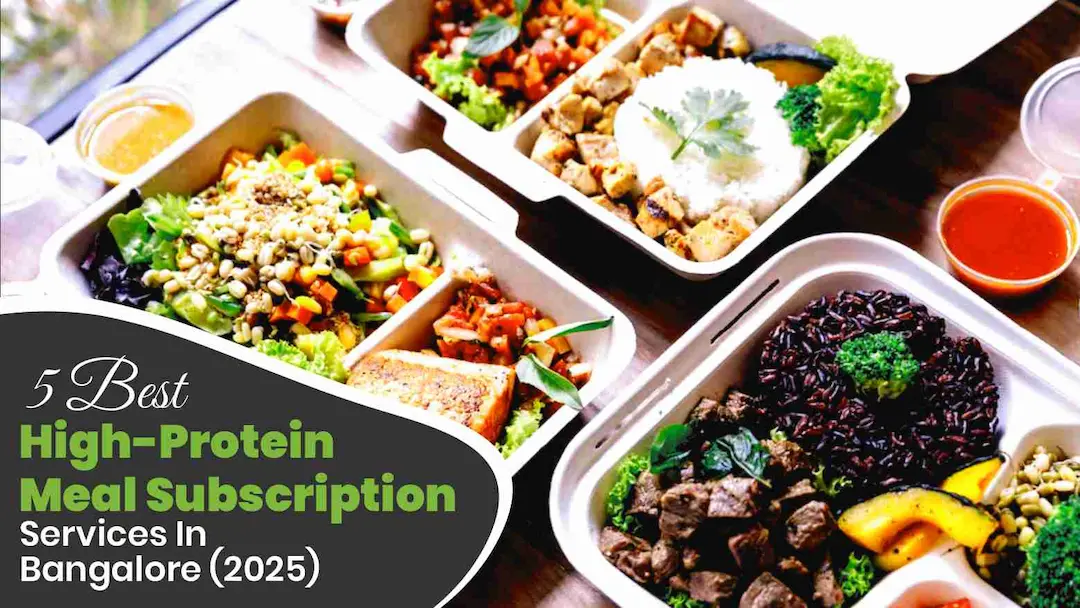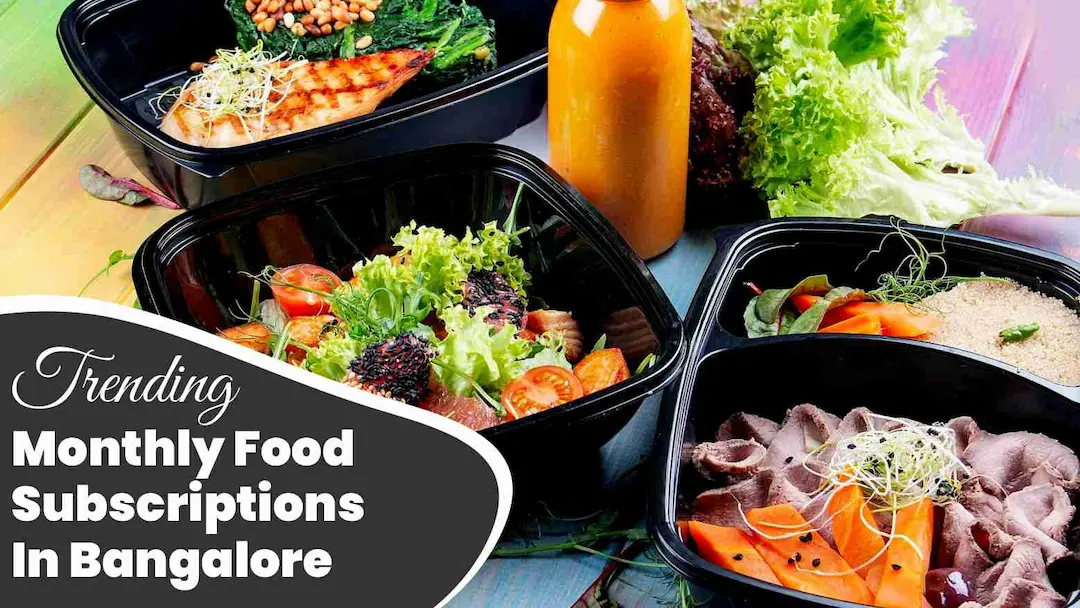Do you often feel bloated or constipated? Want to keep your tummy happy and healthy? You may be looking to control your weight or sugar levels. The secret to solving these problems is right in your kitchen! Fibre, a special kind of food part, is an essential supplement for your body. Fibre-rich foods help with digestion, keep you feeling full, and even protect you from some chronic diseases. India is bountiful with various high-fibre foods, from yummy fibre-rich fruits and veggies to hearty grains and beans. This makes it easier for Indians to add high-fibre foods to their daily diet.
But what are the fibre-rich foods in India that can help you increase your fibre intake and taste delicious simultaneously? Let's explore the best fibre-rich foods in India suitable for all diets, including their health benefits. Also, get some of the best ways to get 100% fibre daily. So, let’s begin!
Table Of Contents
1. Top 10 Fibre Rich Foods In India
2. Which Indian Food Is High In Fibre?
3. How To Increase Fibre Intake In The Indian Diet?
4. How Can I Get 100% Fibre Daily?
5. Dietitian’s Recommendation
6. The Final Say
7. FAQs
8. References
Top 10 Fibre Rich Foods In India

Including fibre-rich foods in your regular diet can help manage blood sugar and enhance overall health. Consider these best fibre-rich foods in India that prove to be healthy when consumed in measured amounts:
1. Lentils
These are fantastic sources of dietary fibre, making them an excellent choice for diabetics. A cup of cooked lentils (198 grams) provides approximately 15.6 grams of fibre. The high fibre content helps promote digestive processes, regulate blood sugar levels, and offer a feeling of fullness. Lentils are commonly consumed with roti or rice, making them a staple in the Indian diet.
2. Whole Grains
Whole grains are rich in fibre staples and healthy fats. Switching from refined grains to quality whole grains like whole wheat, bajra (pearl millet), and kuttu (buckwheat) can significantly increase fibre intake. Whole wheat, for instance, provides about 13 grams of fibre per 100 grams. These grains have a medium to low glycemic index, which helps stabilise blood sugar levels.
Also Read: Here Are 10 Wholesome & Healthy Snacks For Kids To Enjoy Any Time!
3. Beans
Beans are another excellent source of fibre. Different types of beans, such as fresh navy beans, red beans (rajma), pinto beans, and mung beans, contain substantial amounts of fibre. Navy beans have 11 grams of fibre per 100 grams, while rajma and pinto beans provide 6 and 9 grams, respectively. Mung beans, often used in sprout salads, contain 8 grams of fibre. Beans are rich in healthy soluble and insoluble fibre, which aids in digestion and blood sugar regulation.
4. Broccoli
Broccoli is high in soluble fibre and low in calories, with 100 grams of cooked broccoli containing 3.3 grams of fibre and only 30 calories. This green vegetable is also a good natural source of vitamin C and other minerals. Broccoli can be included in salads, curries, and various pasta and noodle dishes, making it a versatile addition to your diet.
5. Peas
Green peas are rich in soluble fibre, with half a cup providing 3.5 grams of fibre, 11 grams of carbohydrates, and just 59 calories. Yellow and split peas are also excellent choices, with half a cup containing 9 grams of fibre. Peas are affordable, widely available, and enjoyed in various Indian dishes like curries, salads, and stuffed parathas.
Also Read: Refreshing 12 Best Healthy Lunchbox Ideas For Nutritious Meal Times!
6. Popcorn
Popcorn is a convenient and healthy snack that is high in fibre. Air-popped popcorn contains 15 grams of fibre per 100 grams. It is a better option than many other snacks because it is low in unhealthy oils and spices. Opt for plain, salted popcorn without adding butter, spices, or caramel to maximise its health benefits.
7. Berries
Berries such as blueberries, strawberries, raspberries, and blackberries are among the highest-fibre fruits. They are low in carbohydrates and high in fibre, with a cup of mixed berries providing approximately 3.2 grams of fibre. In India, other high-fibre fruits include jamun, aaru, rasbhari, and falsa. The fibre in berries helps regulate blood sugar levels.
8. Nuts
These are a great source of soluble fibre and healthy fats. For example, 30 grams of almonds contain 4 grams of fibre, 100 grams of cashews provide 3.3 grams, and 100 grams of walnuts offer 7 grams of fibre. Nuts are easily available in India and can be consumed in their raw, unsalted, and unspiced form to enhance fibre intake.
9. Oats And Barley
Oats and barley are fibre-rich grains that mix soluble and insoluble fibre. One cup of oats (81 grams) contains 7 grams of fibre, while 100 grams of barley provide 17 grams of fibre. These grains can be included in daily meals, such as replacing part of your rice consumption with barley or incorporating oats into morning and evening snacks.
10. Chia Seeds
Chia seeds are extremely high in soluble fibre, with 100 grams containing about 34 grams of fibre. They can be easily added to salads, cereals, oatmeal, and other dishes. Chia seeds help promote feelings of fullness, aid in weight management and provide numerous health benefits.
Also Read: 15 Best Foods For Height Growth During Your Developmental Years!
Which Indian Food Is High In Fibre?
Consider these 7 common Indian foods that are rich in fibre to include in your regular meals:
1. Banana
Bananas are potassium-rich and a convenient source of fibre. They contain both healthy soluble and insoluble fibre, which help promote digestion and prevent constipation. The pectin in bananas can also help moderate blood sugar levels after meals.
2. Millets
Millets, including varieties like jowar (sorghum), bajra (pearl millet), and ragi (finger millet), are packed with fibre. They are a staple in many Indian diets and are known for their high nutrient content, including fibre, which helps maintain bowel regularity and satiety.
3. Moringa Leaves
Known as 'drumstick leaves,' moringa leaves are a superfood rich in fibre. They are often used in traditional Indian recipes and are praised for their nutritional profile, including their ability to improve digestion and support weight management.
4. Spinach
This is another green leafy vegetable that is high in fibre. It is commonly used in various Indian dishes like palak paneer and dal palak. The fibre in spinach helps in promoting a healthy gut and preventing digestive issues.
Also Read: Best Detox Juice Recipes To Detoxify Your Liver, Kidney, & Overall Body
5. Chickpeas (Chole)
These are a fantastic source of both soluble and insoluble fibre. They are a key ingredient in many Indian dishes, including the popular chole. Chickpeas help maintain healthy cholesterol levels and aid in digestion.
6. Guava
Guava is a tropical fruit that is incredibly high in dietary fibre, particularly soluble fibre known as pectin. It is often consumed raw or used in fruit salads and smoothies. Guava helps improve bowel movements and prevent constipation.
7. Okra (Bhindi)
Okra, also known as bhindi, is a fibre-rich vegetable. It is commonly used in Indian cuisine in dishes like bhindi masala and stuffed bhindi. The mucilage in okra adds bulk to stool and eases bowel movements, making it beneficial for digestive health.
Also Read: How Is Prebiotic And Probiotic Different? Understand Their Uses For Digestion, Immunity & More!
How To Increase Fibre Intake In The Indian Diet?
Increasing fibre intake in the Indian diet is relatively simple, given the variety of fibre-rich foods available. Try these practical tips to enhance your daily fibre consumption:
- Include Fruits and Vegetables: Make fruits and vegetables a major part of your meals. Start your day with a fruit like a banana or guava, include a salad with meals, and select vegetable-rich dishes like palak paneer, bhindi masala, or moringa leaf stir-fry.
- Opt for Whole Grains: Replace refined grains with whole grains like millet, whole wheat, and brown rice. Incorporate dishes like millet roti, whole wheat paratha, and brown rice pulao into your diet.
- Add Legumes and Pulses: Regularly include legumes and pulses like chickpeas, lentils, and beans in your meals. Enjoy dishes like chole, dal, and rajma to boost your fibre intake.
- Snack on Nuts and Seeds: These are not just high in fibre but also rich in healthy fats and proteins. Include snacks like roasted chana, flaxseeds, and almonds in your diet.
- Use Fibre-rich Flours: Experiment with flours made from fibre-rich ingredients such as besan (chickpea flour), ragi (finger millet flour), and bajra (pearl millet flour). These can be used to make various traditional breads and snacks.
Also Read: 7 Benefits Of Drinking Protein Shake Before Sleep For Muscle Growth And Better Rest!
How Can I Get 100% Fibre Daily?
Note these ways to incorporate into your daily dietary routine to get up to 100% RDA of dietary fibre:
Ways To Include | Inclusions | Impact on Health |
Understand Your Fibre Needs | Consult a dietitian to determine your specific fibre requirements based on age, gender, and health conditions. Utilise nutrition apps like ToneOp to track your intake. | A personalised approach ensures optimal fibre consumption. |
Slowly Add Fibre to Your Diet | Gradually increase fibre intake to avoid digestive discomfort. Start with small portions and gradually increase. | Allows your body to adjust and prevents bloating or constipation. |
Stay Hydrated | Drink plenty of water throughout the day. Consume fluids alongside fibre-rich foods. | Aids in digestion and prevents constipation. |
Eat Lots of Different Sources of Fibre | Incorporate various recommended fibre-rich foods into your meals and snacks. Explore different types of fruits, vegetables, and whole grains. | Ensures a balanced intake of different fibre types for optimal gut health. |
Consider Fibre Supplements | If you are unable to get enough fibre from your diet, consider trying fibre supplements. | It can be beneficial for people dealing with specific health conditions or dietary restrictions. |
Also Read: Is Cold Coffee Good For You? Here Are Some Insights That Can Help You Get Your Answers!
Dietitian’s Recommendation
To achieve your daily fibre intake goals, you don't need to buy expensive supplements or shakes. I strongly recommend adding more colourful vegetables and fruits to your daily meals and snacks. These are the best fibre-rich foods in India. Sprinkle some chia or flax seeds into your yoghurt, add lentils to your curry, snack on fresh fruit, and find creative ways to incorporate extra veggies into your meals.
Dt. Lavina Chauhan
The Final Say
Fortunately, India has a variety of nutritious fruits and vegetables that are rich in fibre. Including fibre-rich foods in India is a simple way to ensure that your fibre needs are met with various flavours. From aiding digestion to regulating healthy cholesterol and blood sugar, fibre intake effectively supports weight loss and reduces the risk of disease.
So, ensure a daily intake of 25 grams of fibre daily for women, while men should aim for about 38 grams or 14 grams for every 1,000 calories. Remember, increasing the high-fibre foods portion in your diet must be done in moderation to improve your health.
FAQs
1. What are the best foods containing fibre in India?
India boasts a diverse range of fibre-packed foods! Think whole grains like brown rice, oats, and millets; legumes like lentils, chickpeas, and kidney beans; and colourful variants of fruits and vegetables like apples, berries, broccoli, and spinach.
2. What are the best fibre-rich vegetables in India?
Indian is a veggie lover's paradise! Load up on fibre with leafy greens like spinach and fenugreek, cruciferous veggies like broccoli and cauliflower, and fresh root vegetables like carrots and sweet potatoes. Remember fibre-rich okra and bottle gourd, too!
3. What are the rich fibre fruits in India?
Indulge in nature's sweetness while boosting your fibre intake! Apples, pears, berries, guava, and oranges are excellent choices. For a tropical twist, try papaya, mango, and sapota.
4. What are the best fibre-rich foods in India for vegetarians?
Vegetarians have many fibre-rich options! Enjoy whole grains, legumes, nuts, seeds, and various fruits and vegetables. You can create delicious and satisfying meals packed with fibre.
5. How many varieties of rich fibre foods in India are offered?
India's cuisine offers the best fibre-rich foods! From the east to the southern regions, you'll find countless rich fibre food options to suit every taste and preference. Experiment with different grains, legumes, fruits, and vegetables to discover your favourites.
6. How can I get 30g of fibre a day?
Aim for 5 servings of fresh fruits and vegetables daily, and include at least 2 servings of whole grains in your main meals. Look for foods with 6g or more fibre per 100g. Remember, it's about variety and balance. Incorporate fibre-rich foods into daily meal and snack to reach your fibre goals.
References
- https://www.mdanderson.org/cancerwise/8-tips-for-reaching-your-daily-fibre-intake.h00-159622590.html
- https://www.eatright.org/health/essential-nutrients/carbohydrates/easy-ways-to-boost-fibre-in-your-daily-diet
- https://geenaardappels.nl/en/informative/7-indian-foods-rich-in-fibre
About ToneOp Eats
ToneOp Eats is your go-to health kitchen, delivering nourishing meals in Bhopal, Indore & Bangalore. The meals are prepared with strategically planned nutrition and portions for your health goal. With just three simple steps, you can subscribe to a meal plan for weight loss, muscle gain, or balanced diet goals. Experience the perfect blend of taste and wellness in our nutrient-dense and calorie-counted range of meals, including protein-rich grills and meal bowls, full of fibre salads & smoothies, workout-friendly protein 30,40,50 meals and refreshing juices.










